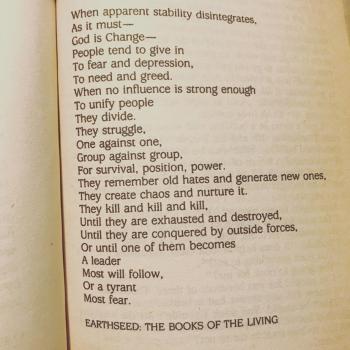The term “apologist” has become an insult, but it was not always so. If we consider those who tend to be placed in the category “apologist” in the early church – figures like Justin Martyr, Tertullian, and Origen – then clearly they were also as much “scholars” as anyone in their time.
 The lines can be blurry in the present day as well.
The lines can be blurry in the present day as well.
At one end of the spectrum, that of “scholarship,” we might place those who simply seek after the truth, and follow evidence where it leads, who use their reason to try to get at answers to questions which they consider interesting, but with no ax to grind – or at least not to such an extent that they would not revise their conclusions and even rethink their presuppositions if evidence required it.
At the other end of the spectrum, that of “apologetics,” we might place those who are seeking to defend their beliefs at all costs, seeking any argument, quotation, or so-called “proof” that might allow them to score points against others, or persuade themselves that criticisms made and arguments put forward by others can be rejected or ignored.
Most people are not at either extreme.
In between, there are a full range of people whose work may be mostly critical or mostly uncritical, and who fall at varying points along a spectrum, but clearly fit more squarely into one category than the other.
But near the middle, there are also those who wear their commitments and presuppositions proudly, and who are unashamed that they are seeing things from a particular place. And their commitments – whether Christian or atheist, feminist or liberation theologian – are not merely an interpretative framework that skews their vision, but an interpretative framework which at times enables them to see things in a way that someone with different assumptions would have missed. They are engaging neither in scholarship that attempts to be disinterested, nor in mere defense or advocacy of a beloved viewpoint.
Speaking in generalized terms, perhaps it could be said that those who are scholars know that words are hard to pin down and the domains they refer to have blurry edges; those who are apologists are prone to disagree. And so perhaps how one responds to this post may indicate which pole you tend towards.
Another good test of whether you are too far from the pole of scholarship might be whether you recognize that those who see from a different stance than you have something worthwhile and useful to offer. If you have never learned something from someone with a radically different, even opposing, viewpoint to your own, chances are that you are closer to the pole of defending your views at all costs, than to the pole of seeking to understand and appreciating any and all assistance that may be offered on the road to understanding.












